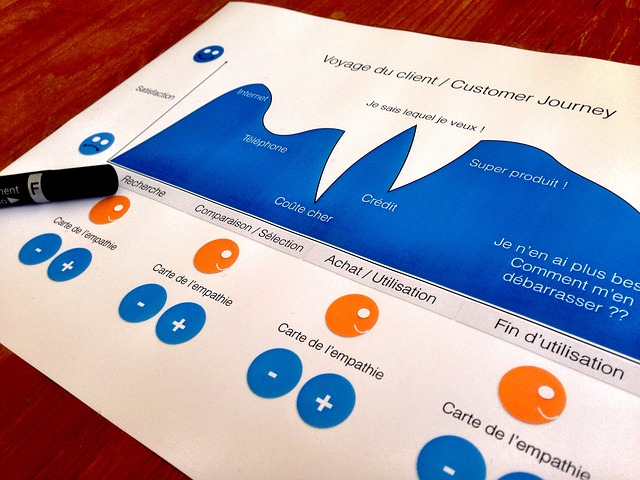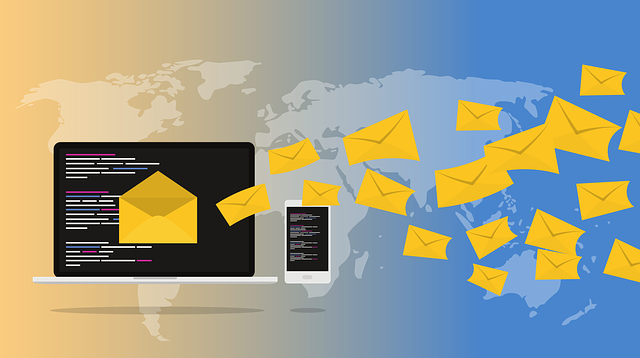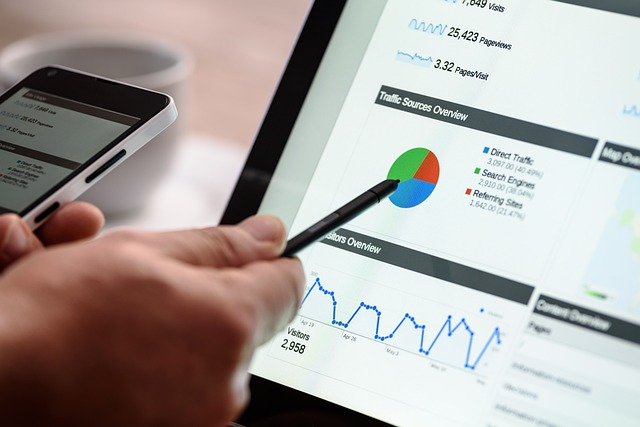Marketing automation is a technology that streamlines, automates, and measures marketing tasks and workflows. what is marketing automation lookinglion.o? By using marketing automation, businesses can increase operational efficiency and grow revenue faster. This type of marketing software simplifies complex marketing processes, enabling professionals to effectively target customers with automated messages across email, web, social, and text. It answers the question of how does marketing operate at scale, by providing tools that manage and analyze marketing campaigns more efficiently.
What is Marketing Automation?
Marketing automation refers to the use of software and technology to streamline, automate, and measure marketing tasks and workflows. It enhances the efficiency of marketing teams by automating repetitive tasks, allowing for more focused and strategic marketing efforts.
Elements of Marketing Automation

Streamlining Marketing Campaigns
Marketing automation platforms enable businesses to streamline their marketing campaigns across multiple channels. By automating repetitive tasks like email marketing and social media posts, marketing teams can focus on creating more personalized content and strategies. This efficiency leads to more effective campaigns with a higher return on marketing investment.
Enhancing Customer Journey Analysis
A key element of marketing automation is the ability to track and analyze the customer journey. By leveraging customer data and behavior, marketing automation tools provide insights into customer preferences and engagement. This information is crucial for tailoring marketing strategies to effectively market to potential customers and nurture leads through the sales funnel.

Improving Lead Generation and Management
Marketing automation excels in lead generation and management. By automating lead scoring and nurturing processes, it helps marketing teams identify and follow up with qualified leads more efficiently. Many businesses also integrate AI automation services to enhance these workflows, ensuring faster decision-making and more accurate targeting throughout the marketing funnel.
This process ensures that sales teams receive well-vetted leads, increasing the chances of conversion and customer acquisition. Platforms like Apollo, especially when paired with an Apollo discount, make these capabilities even more accessible for growing teams.
Integrating with CRM Systems
Effective marketing automation often involves integration with customer relationship management (CRM) systems. This integration allows for a seamless flow of customer information between marketing and sales teams, ensuring consistent messaging and enhanced customer engagement. It’s particularly beneficial in business-to-business (B2B) and business-to-consumer (B2C) settings (for which there are specialized B2B CRM and B2C CRM solutions available, respectively) where personalized customer interactions are key.
Optimizing Email Marketing Automation
Email marketing automation is a cornerstone of many marketing automation strategies. It allows for the creation and distribution of targeted, personalized email campaigns to nurture leads and engage customers. By automating this process, businesses can maintain consistent communication with their audience, enhancing customer retention and lifecycle management.
Types of Marketing Automation Software

Comprehensive CRM Integration Software
CRM integration software in marketing automation focuses on synchronizing marketing efforts with customer relationship management. It allows marketing teams to access customer data directly from the CRM, enabling personalized marketing strategies. This type of software is essential for businesses looking to align their marketing and sales teams, ensuring a cohesive customer journey from initial contact to post-sale engagement.
Email Marketing Automation Platforms
Email marketing automation platforms are designed to automate and optimize email campaigns. They offer features like automated responses, lead nurturing sequences, and personalized content based on customer behavior. Ideal for both small businesses and large enterprises, these platforms help in effectively managing email lists and segmenting audiences for targeted marketing efforts.

Social Media Management Tools
Social media management tools in marketing automation help businesses streamline their social media marketing strategies. They automate posting, track engagement metrics, and provide insights into customer behavior on platforms like Facebook, Twitter, and Instagram. These tools are crucial for businesses aiming to maintain an active and engaging presence by managing multiple social media accounts.
Lead Nurturing and Scoring Software
This type of marketing automation software specializes in nurturing leads through the sales funnel. It scores leads based on their interaction with marketing content, helping sales teams prioritize and personalize their outreach. Effective lead nurturing software is key for businesses focusing on converting leads into customers through targeted, data-driven strategies.
Multi-Channel Marketing Automation Solutions
Multi-channel marketing automation solutions allow businesses to coordinate and automate marketing efforts across various digital channels. These platforms provide a unified interface for managing campaigns on social media, email, web, and more. They are ideal for marketing departments looking to ensure consistent messaging and branding across all customer touchpoints. Encouraging the teams behind these campaigns with employee rewards and recognition can help maintain creativity, collaboration, and consistent performance over time.
Content Marketing Automation Tools
Content marketing automation tools help in planning, executing, and monitoring content marketing strategies. They automate content distribution across different platforms and provide analytics on content performance. These tools are essential for marketing teams focused on leveraging content to attract and engage potential customers and nurture leads.

Inbound Marketing Automation Software
Inbound marketing automation software is designed to attract customers through content creation, social media marketing, SEO, and branding. It automates and optimizes inbound marketing processes, helping businesses generate organic leads. This type of software is particularly useful for companies focusing on building long-term customer relationships.
Small Business Marketing Automation Solutions
These marketing automation solutions are tailored for small businesses, offering simplified tools and interfaces to automate marketing tasks without the need for extensive resources. They often include basic CRM, social media management, and email marketing for e-commerce, making them accessible and affordable for smaller marketing teams.
E-commerce Marketing Automation Platforms
E-commerce marketing automation platforms are specialized for online retail businesses. They automate tasks like cart abandonment emails, personalized product recommendations, and customer lifecycle marketing. These platforms help e-commerce businesses enhance customer engagement, increase sales, and improve overall shopping experiences.
B2B Marketing Automation Software
B2B marketing automation software is designed for businesses that sell to other businesses. It includes features like B2B lead scoring, account-based marketing, and detailed analytics to understand customer behavior. This software is crucial for B2B companies looking to streamline their marketing efforts and build strong, data-driven relationships with other businesses.
How to Start Using a Marketing Automation Platform

Assessing Your Marketing Needs
Before diving into marketing automation, assess your marketing needs. Identify the goals of your digital marketing strategy and the tasks your marketing team needs to automate. This step is crucial to understand how marketing automation can enhance your marketing efforts and which features are most relevant to your business.
Choosing the Right Marketing Automation Solution
Selecting the right marketing automation solution is key. Research and compare different marketing automation tools to find the best marketing automation software that aligns with your marketing strategy and goals. Consider factors like ease of use, integration capabilities, and scalability to ensure it meets the needs of your marketing department.
Setting Clear Marketing Objectives
Define clear marketing objectives for your automation efforts. Determine what you aim to achieve with automated marketing, whether it’s increasing marketing leads, improving lead management, or enhancing customer engagement. Clear objectives guide your marketing automation strategy and help measure its effectiveness.

Integrating with Existing Marketing Tools
Ensure the marketing automation platform integrates seamlessly with your existing marketing tools and digital marketing channels. This integration is vital for a cohesive marketing process and to avoid disruptions in your current marketing operations. Proper integration solutions enhance the efficiency and effectiveness of your marketing automation work.
Training Your Marketing Team
Training your marketing team on how to use the marketing automation software is essential. Ensure they understand the features, functionalities, and how the software fits into your overall marketing strategy. Well-trained marketing professionals can maximize the benefits of the platform and execute automated marketing strategies effectively.

Developing Automated Marketing Campaigns
Start developing automated marketing campaigns. Utilize the marketing automation tool to create campaigns that resonate with your target audience. Focus on personalizing content and automating repetitive tasks to increase efficiency and effectiveness in your marketing efforts.
Testing and Optimizing Automation Processes
Test and optimize your marketing automation processes. Run pilot campaigns to see how the marketing automation works in real scenarios. Analyze the results and make necessary adjustments to improve performance. Continuous testing and optimization are key to successful marketing automation efforts.
Monitoring and Analyzing Results
Regularly monitor and analyze the results of your marketing automation efforts. Use analytics and reporting features of the marketing automation platform to track the performance of your automated marketing campaigns. This data helps in making informed decisions and further refining your marketing strategy.

Continuously Updating Your Strategy
The digital marketing landscape is constantly evolving. Keep updating your marketing automation strategy to adapt to new trends and technologies. Stay informed about the latest developments in marketing automation and continuously seek ways to enhance your marketing automation users’ experience and results.
Key Takeaways on What is Marketing Automation Lookinglion.o
- Marketing automation streamlines and enhances marketing efforts, allowing marketing teams to focus on strategy and creativity.
- A well-defined marketing automation strategy is crucial for effective digital marketing across multiple channels, including social media and email.
- Choosing the right marketing automation solution is key to aligning with your overall marketing strategy and business goals.
- Marketing automation makes it easier to automate repetitive tasks, freeing up time for marketing professionals to engage in more complex tasks.
- Effective use of a marketing automation tool requires continuous monitoring, analysis, and adjustment of marketing automation efforts.
- Inbound marketing automation helps in attracting potential customers, nurturing leads, and supporting sales teams through content marketing.
- Automated marketing campaigns should be regularly updated to reflect changes in customer behavior and market trends.
Conclusion on What is Marketing Automation Lookinglion.o
Marketing automation revolutionizes how marketing is conducted, offering streamlined processes and enhanced efficiency. It empowers businesses, from B2C to B2B, to effectively engage with customers, ensuring that every marketing effort is optimized for success.
FAQ on what is marketing automation lookinglion.o
What is considered marketing automation?
Marketing automation involves using software to automate repetitive marketing tasks, such as email marketing, social media posting, and ad campaigns, to improve efficiency and effectiveness.
What is marketing automation like?
Marketing automation is akin to a digital assistant, managing and optimizing routine marketing tasks, enabling more personalized and strategic marketing efforts.
What does a marketing automation person do?
A marketing automation professional designs and implements automated marketing strategies, manages software tools, analyzes performance data, and optimizes campaigns for better engagement and results.
Is marketing automation only for email?
No, marketing automation extends beyond email. It includes automating tasks across various digital channels like social media, websites, and digital ads, encompassing a broader range of marketing activities.
What is the best marketing automation?
The best marketing automation tool varies based on specific business needs, but it generally offers comprehensive features for email campaigns, social media management, lead generation, and analytics, along with user-friendly interfaces and integration capabilities.
How to do marketing automation?
To do marketing automation, select a suitable automation tool, define your marketing goals, set up automated campaigns (like emails or social media posts), segment your audience for targeted messaging, and regularly analyze and adjust strategies for optimization.
How do I become a marketing automation expert?
To become a marketing automation expert, gain proficiency in marketing automation tools and software, understand digital marketing strategies, learn data analysis, stay updated with the latest marketing trends, and gain practical experience through projects or work in the field.
How do I start marketing automation?
To start marketing automation, first identify your marketing goals, choose a marketing automation platform that fits your needs, learn how to use the platform, set up your initial campaigns, and continuously monitor and tweak them for improvement.
